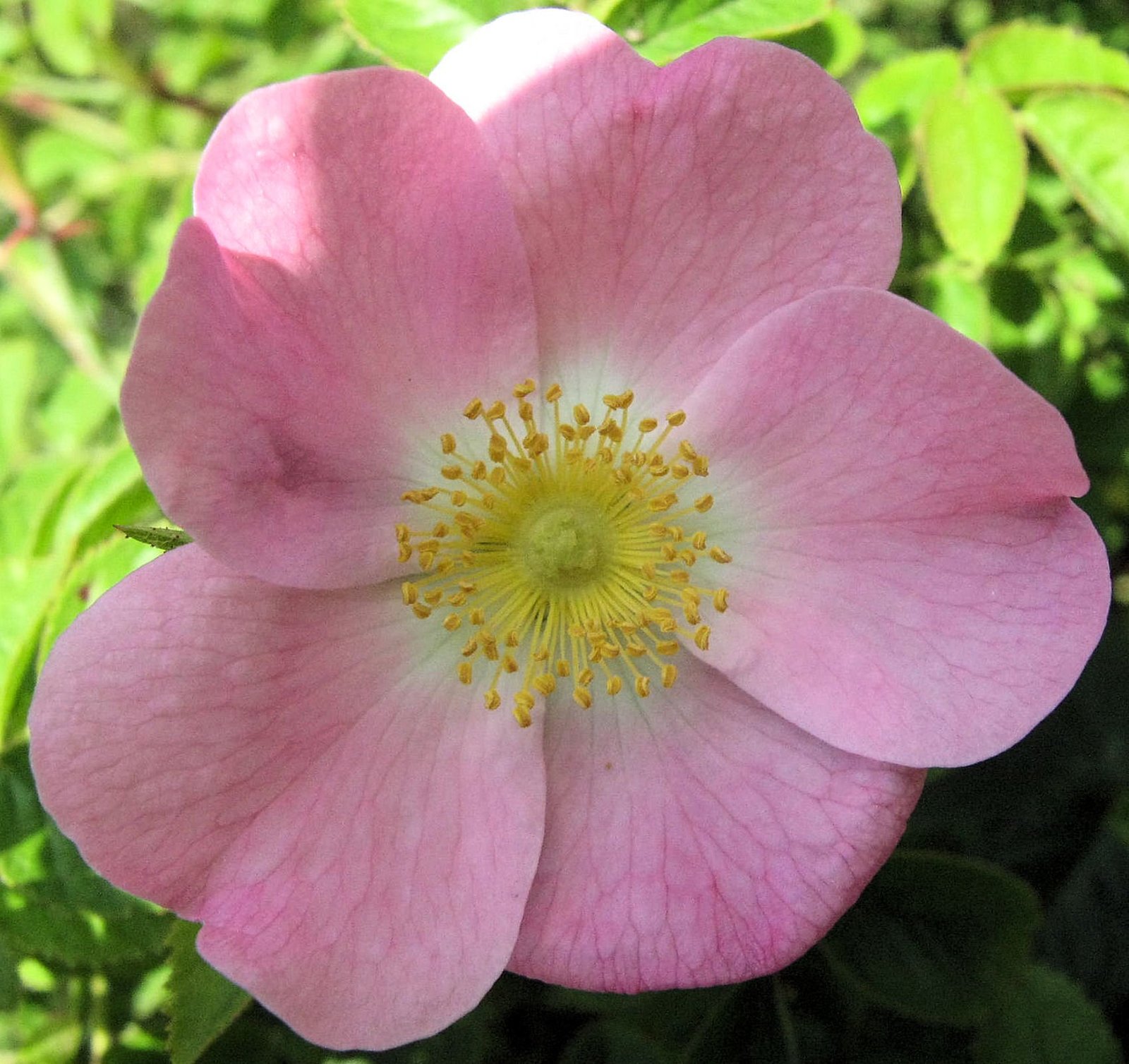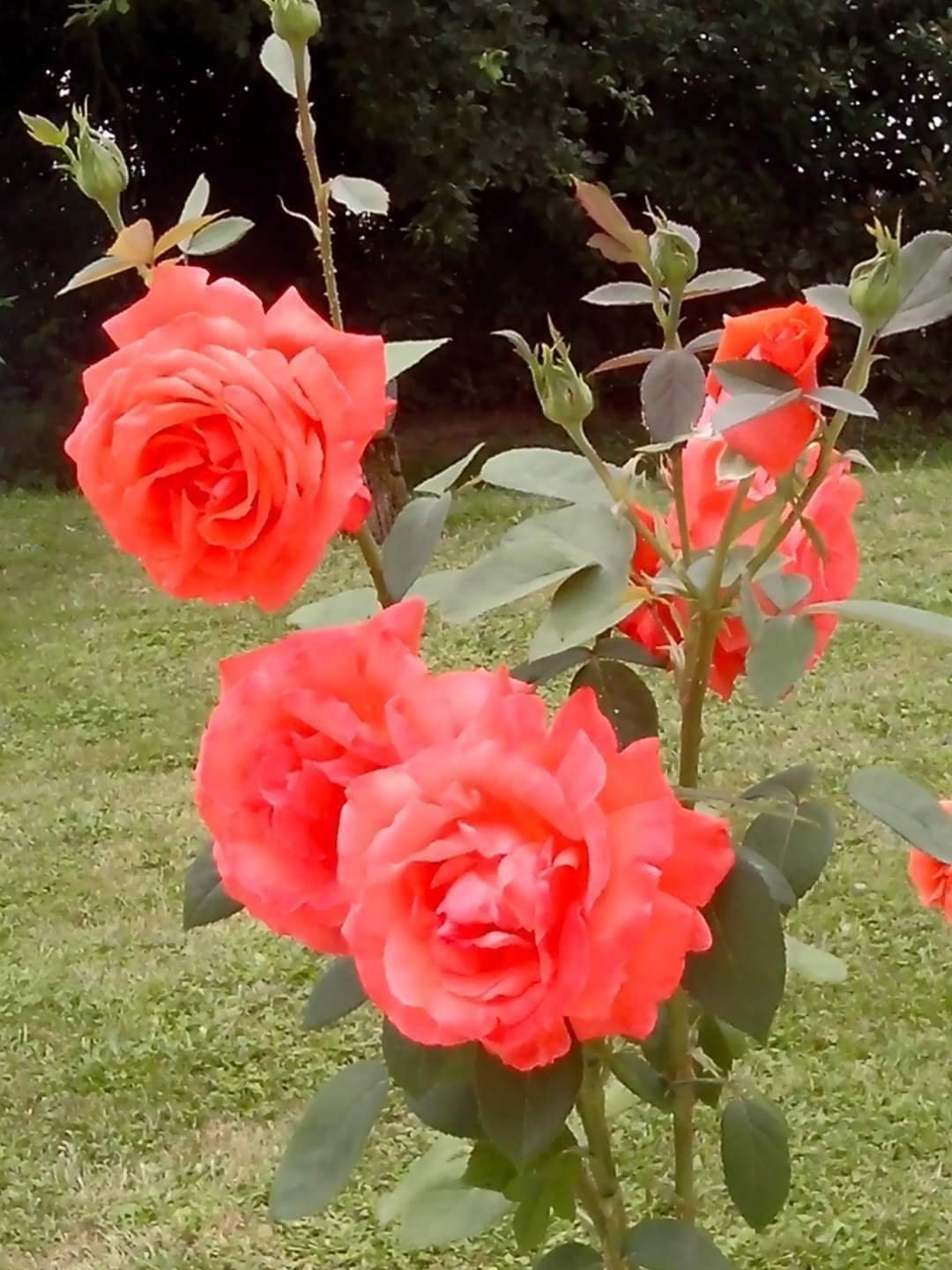Can Mulch Be Used Around Roses?

 , licensed under CC BY-SA 2.0
, licensed under CC BY-SA 2.0Yes, you can and should use mulch around rose bushes. Mulching roses provides numerous benefits, including improved moisture retention, weed suppression, and temperature regulation for the plant’s roots. When applied correctly, mulch can significantly enhance the health and growth of your rose garden.
Types of Mulch Suitable for Roses

When choosing a mulch for roses, several types are recommended due to their benefits and minimal drawbacks.
Organic Mulches
- Composted Straw or Bark: These mulches are excellent for retaining moisture, suppressing weeds, and adding nutrients to the soil as they break down[2][4][5].
- Well-Rotted Manure: This must be at least 2 years old to avoid burning the roots of the roses. It provides valuable nutrients and improves soil structure[2][4].
- Shredded Cedar Mulch: Stays in place well, even in windy conditions, and can be easily raked back for fertilizing. However, it may not add as many nutrients as other organic mulches[3][5][4].
- Shredded Redwood Bark: Breaks down quickly into humus, retains moisture, and deters weeds. It also provides a finished look to the garden beds[4].
- Grass Clippings and Leaves: These can be used but may not be as aesthetically pleasing. They break down quickly and add organic matter to the soil[3][4].
Non-Organic Mulches
- Gravel Mulch: Specifically, ¾-inch (2 cm.) gravel like Colorado Rose Stone is useful for fertilizing and adding organic matter underneath. It does not retain moisture as well as organic mulches but can help regulate soil temperature[3][5].
What is the Recommended Depth and Application Technique for Mulch Around Roses?
Depth
- Apply a 1-2 inch (2.5-5 cm) layer of mulch around the base of the rose bushes, spreading it to the width of the rose canopy. This depth helps retain moisture and suppress weeds without overwhelming the plant[2][4].
Application Techniques
- Before applying mulch, ensure the soil is clear of old leaves and weeds, and water the surrounding soil. This helps the mulch work more effectively[2].
- Mulch can be applied in late March or early April after the first feed of the season. If the mulch layer has disappeared by autumn, a second application may be beneficial before winter[2].
How Does Mulch Affect Soil Moisture Retention, Temperature, and Weed Suppression for Roses?
Moisture Retention
- Organic mulches like composted straw, bark, and well-rotted manure help retain soil moisture, reducing the need for frequent watering[2][3][4].
Temperature Regulation
- Mulch insulates the soil, keeping it cooler in summer and warmer in winter. This helps regulate soil temperature, which is beneficial for rose plants[4].
Weed Suppression
- Mulch effectively suppresses weeds by blocking light and preventing seed germination. This reduces competition for nutrients and moisture, benefiting the rose plants[2][3][4].
What Are the Potential Challenges or Considerations When Mulching Roses?
Potential Pest Issues or Diseases
- Ensure the mulch is free from diseases and pests. There have been cases where diseased trees were shredded into mulch, causing severe illness in gardens and pets[3][5].
- Keep the mulch away from the stems of the roses to prevent rot and promote good air circulation[2].
Other Considerations
- Avoid using fresh manure, as it can burn the roots of the roses. Only use well-rotted manure[2].
- Be cautious of mulch that is too dense or piled too high against the plant stems, as this can lead to rot and other issues[4].
Reference:
1. David Austin Roses: [How to mulch a rose][2]
2. Gardening Know How: [Mulch Types For Rose Beds][3]
3. Rose Notes: [Mulching Roses][4]
